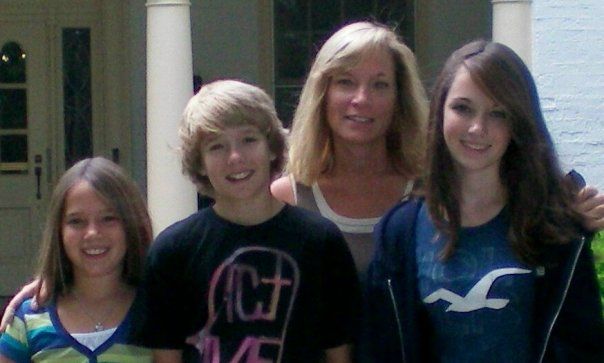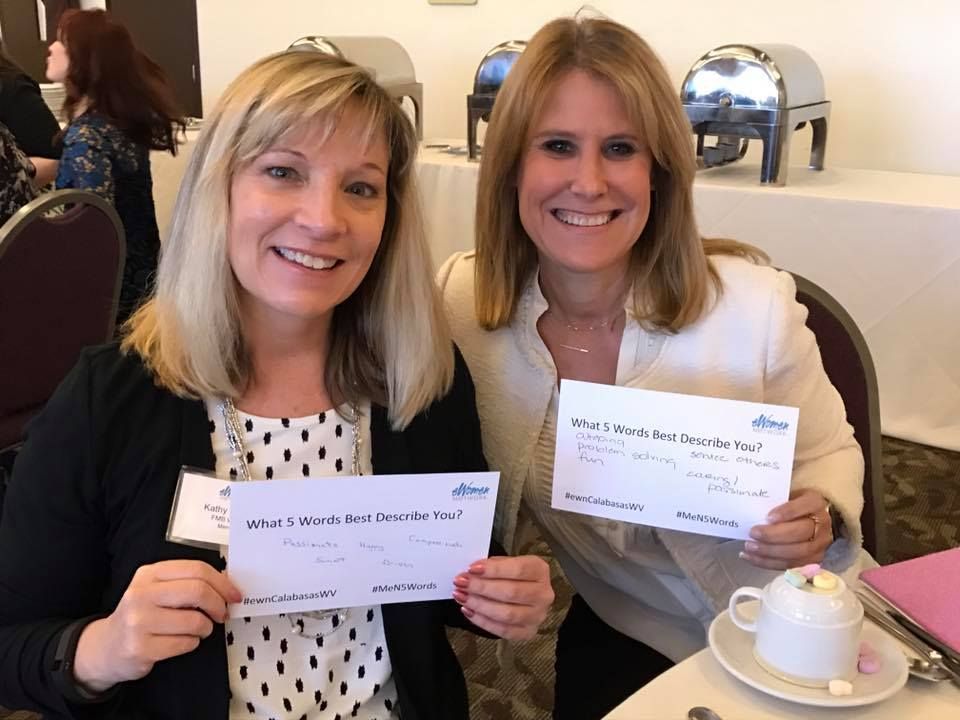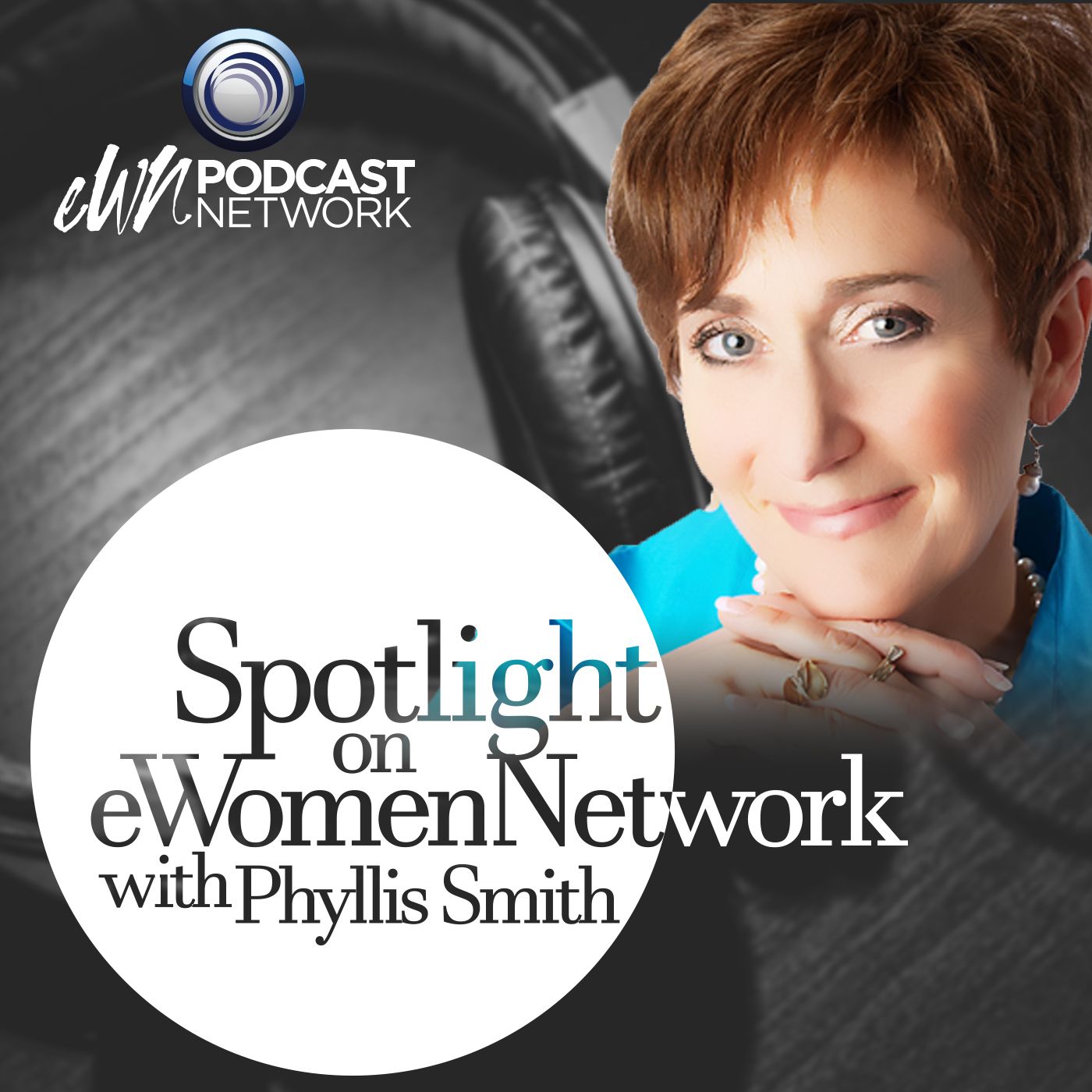On this episode of Spotlight on eWomenNetwork, Kathy Costas begins her story of divorce from the kitchen floor of her home where she lay after her now ex-husband had choked her until she passed out. He had never been violent in the 19 years they had been married, but once he knew she was done with the marriage he became desperate and physically violent. At the time she was only working part time and had 3 kids age 8,11 and 13. She eventually got a lifetime restraining order, full custody of the kids and survived a 6 year "soup to nuts" divorce. After that horrific experience, Kathy made it her mission to become a trusted adviser for women going through a divorce. She is now one of only 2000 Certified Divorce Financial Analysts - a certification that qualifies her more than an attorney to provide financial planning advice.
Watch the video, read the shortened transcript below or click here to listen to the Spotlight on eWomenNetwork Podcast interview at eWNPodcastNetwork.com.
The Courage to Leave Him
Added note from Kathy Costas: The control in my marriage started with what seemed like concern, caring and an attempt to be protective. Over time it grew to be more isolation from friends and family, verbal abuse, uncontrolled anger and unpredictable behavior. In the end I survived about 4 months of escalating violence that started with a shove, then knocking me down in the driveway on the concrete, then smacking me in the face and head and then repeated rape. Ultimately it was the event I described about being choked until I passed out and woke up on the floor that gave me the strength to call the police and get out. I was truly a prisoner in my home with a monster at the gate, taking my keys, my cell phone and threatening to take my children. I understand the feeling of having no way out. I want to make sure that any woman in a situation at all like this, knows there is a way out and they can go from victim to survivor to fully thriving in their life as I have.
(Partial Transcript from Interview below)

From Victim to Divorce Survivor
PHYLLIS SMITH: You consider yourself a survivor because of what you’ve been through in your divorce. Walk us through that. You were married; you decided to get a divorce; and then when you chose to leave the marriage, it was like something snapped in your husband. Tell us about that story.
KATHY COSTAS: My story begins when I woke up on the kitchen floor unable to move. My ex-husband had choked me until I passed out. I woke up, and I couldn’t move my arms and legs. My head was tilted to the side, and I could see my daughter’s feet standing there in the kitchen. She was 13 at the time. I had a 13-year old daughter, an 11-year old son, and an 8-year old daughter. It was really a wake-up call. It was that moment when I knew we were really in danger - that this man could very well kill me and them as well.
To back up a little bit – this was a 20-year marriage. We met when we were 19 and in college. There was never violence before this. He was a yeller and a screamer, but never physically violent with me. It was, as you said, “This is it, I’m done, I’m out,” that this rage came up. I was shocked, terrified and surprised – everything like that. I quickly realized: I’ve seen this rage, and it’s going to be deadly. At that point, I really started to get my ducks in a row, because what most people don’t understand when something like this happens is if it’s a first offense, generally speaking, if the police come, that person is coming back to your house that evening or maybe the next morning. When you’re in a situation like this, it’s important to make plans. You need to have money, resources, kids’ birth certificates and social security cards. I have a son who has a lung disease called cystic fibrosis, so I needed to make sure that I had all 15 of his medications stashed somewhere. There is planning that goes into it. Obviously, if you’re in danger of being severely hurt, you need to call the police, but you need to make some plans ideally before that happens.
PHYLLIS SMITH: Let me ask you, Kathy, you didn’t leave after that experience. You waited and got your plans together before you left him, so that you knew you’d be gone and that he wouldn’t be coming back.
KATHY COSTAS: It wasn’t a long amount of time. It was a matter of days. At that point, the other thing he would do is take my car keys, my cell phone and park his car behind my car in the driveway. He literally would trap me there so there was no walking out. I didn’t want to leave my children and walk out, and yet I knew a first offense, if I called the police, he would be back. So, that was my spring-to-action plan in that moment.
Do all those things – get money; get a credit card in my name to get things out of my household so that when it was time to go and I had that opportunity, we would be ready. In this situation, you feel trapped, but there’s also that fear of, “I don’t know where my next foot is going to go.” If I leave this situation, yes, this is a terrible situation and I need to get out, but I don’t know where I’m going to land.
You start making those plans and figuring those things out as best you can, and that’s part of what gives you the courage to get out, to make that big leap and take that big step.
if you’re in danger of being severely hurt, you need to call the police, but you need to make some plans ideally before that happens.
A Trajectory to Trusted Financial Advisor
PHYLLIS SMITH: This then led you on a trajectory that led you to a new career. What were you doing before then, and what did you do after this happened? Besides getting a divorce, how did this change your life?
KATHY COSTAS: Right. In my first life, I was a commercial banker in New York City on Wall Street, and I had stopped that and was home with my kids for 6 or 7 years. It was a wonderful thing. At this point, I had started to work my way back into the workforce, but I was doing a part-time job. I was doing books for a computer company. At that point, once we got out and things were starting to stabilize, I knew that I wanted to go back into the financial services arena. That was where my passion was.
Relatively soon after that, I found this specialty of this CDFA, and I started to research it and find out how I could get that position. There are four different exams and a final exam. It’s a whole course of study about divorce.
PHYLLIS SMITH: Wow! I didn’t realize that there was a specific certification for divorce. Why is there a certification that’s specific toward divorce?
PHYLLIS SMITH: This then led you on a trajectory that led you to a new career. What were you doing before then, and what did you do after this happened? Besides getting a divorce, how did this change your life?
KATHY COSTAS: Right. In my first life, I was a commercial banker in New York City on Wall Street, and I had stopped that and was home with my kids for 6 or 7 years. It was a wonderful thing. At this point, I had started to work my way back into the workforce, but I was doing a part-time job. I was doing books for a computer company. At that point, once we got out and things were starting to stabilize, I knew that I wanted to go back into the financial services arena. That was where my passion was.
Relatively soon after that, I found this specialty of this CDFA, and I started to research it and find out how I could get that position. There are four different exams and a final exam. It’s a whole course of study about divorce.
PHYLLIS SMITH: Wow! I didn’t realize that there was a specific certification for divorce. Why is there a certification that’s specific toward divorce?
KATHY COSTAS: It’s very complicated. Obviously, any divorce is complicated, and what the certification does is take a deep dive into tax implications of different income streams. It talks about dividing up assets, characterization of property, different support types (child support, spousal support) and how it’s determined - even through getting life insurance to secure a court order. All these different aspects of divorce, and if you think about it, divorce is really money and kids. If you don’t have kids, then it’s just money. Your attorney goes to law school, and they don’t usually have an MBA. They are not financial planners. Even if you have a forensic accountant, they will add up how many beans are in the jars, but they don’t tell you which jar you want.
It’s amazing that this is not a bigger profession in that it’s not more common in divorces because it seems so common-sense. When I went through my own divorce, I had a financial background and knew that I was not getting that planning advice, or what asset do I really want, from my attorney. That’s not their role. They’re there to tell you what you’re entitled to legally, but they’re not doing the planning for you. Their job is to keep their eye on the legal ball.
PHYLLIS SMITH: You also help provide professional resources such as therapists, medical insurance, and mediators. You also sound like you’re more of a holistic support system for people going through the divorce.
KATHY COSTAS: Absolutely. This takes over every nook and cranny of your life. Having gone through it, I understand the anxiety, the fear, the panic, and the lack of trust as your trust has been broken through this process. You know, I always say, I thought that was a chair over there, and now I’m not so sure because I also thought my marriage was this and it’s not. It just leaves you in this terrible condition. My goal is to create resources for my clients. People that I feel good about, trust, and that I know that they understand where my clients might be emotionally, and they’re not maybe at their best at this point. I build those resources so that my clients have people to go to that I feel comfortable with. It’s also frankly education for me because I’m not a therapist; I’m not an attorney; I’m not going to give you legal advice or mortgage advice, but I want to know enough to know what questions to ask. I want to know enough so that when there are issues that come up, I can be good support.
If you think about it, divorce is really money and kids. If you don’t have kids, then it’s just money. Your attorney goes to law school, and they don’t usually have an MBA. They are not financial planners.
Biggest Financial Mistake in Divorce
PHYLLIS SMITH: From your expertise, what is the biggest mistake that you would say most people make when they are getting a divorce and the financial aspect of it?
KATHY COSTAS: Going through divorce is like being pregnant. Everybody has an opinion, and they feel they must give it to you. A lot of what I run into is people listen to friends and family when they should be listening to an expert. Use your friends and family for love and support as you’re going to need them. A lot of times I will meet with someone and they say, “Well, I’m using this attorney because Aunt so-and-so or my cousin or whatever suggested I need to get a bull dog and I need to go after him,” and things like this or, “I deserve this or he’s going to do this or I’m going to do that.” That's been given lovingly and so forth, but it’s not necessarily appropriate to your case. I always say build your team of experts first. Your team of experts should include a legal person, and it can be a mediator. Mediation is a great opportunity to preserve some sort of civility in a relationship. Whatever it might be, listen to your experts for advice pertaining to the specifics of your case. Otherwise, you can go down some roads that waste time and money and can make your situation worse, because as soon as you say the word lawyer and file papers, it automatically raises the stakes and puts people on the defensive. That’s not always what you need to do.
PHYLLIS SMITH: Do you recommend that before they file for divorce that they meet with someone like you and get a team together so that they’re ready to go?
KATHY COSTAS: Absolutely, if you have some lead time and it’s something you’re contemplating. I meet clients all the time who will say to me, “I think this might be what I want to do, but I want to know what it’s going to look like.” I can sort of model out for them, again bringing in my experience of spending 6-years in a court room, understanding how things go from a legal point of view and what’s enforceable in family law. Family court is a court of equity. It’s not a court of law. There are different ways to enforce or lack of ways to enforce judgements. Knowing the practicalities of divorce, I can give someone a road map and give them a heads up and say, “This is likely what’s to be difficult,” or “It could go this way.” I always recommend that initial consult, and I always recommend getting more than one legal opinion on what you should do and how you should do it, because attorneys have their own personalities and processes, and you really want to match the attorney to your own way of doing things and the way you’d like this to go. If your spouse as already hired their own legal representation, then that’s another factor to consider. If you have the ability and time to do it, I think doing some initial planning is always a good idea.
Divorce is Not a Sprint. It's a Marathon
PHYLLIS SMITH: The work you’re doing now that helps others work through a very difficult, monumental, stressful and often awful time of their lives – you can do that because of what you went through. Do you see that as a pivotal time for you for what you did and the abuse you went through? Had you not been through those days and almost dying – do you feel a sense of gratitude that it took you to where you are now? You had to go to an extreme; had you just gotten a divorce, this probably wouldn’t be your path.
KATHY COSTAS: It’s funny the way you said that, because I have said before that I don’t thank my ex-husband for what happened, but in a sense, it has given me my path in life and my passion in life. Absolutely. The work I do is the most rewarding as you can imagine. It’s draining, tiring and all of that, but there’s nothing more rewarding than watching a woman come through something as a survivor. I never say victim but survivor because that gives you your strength back. The amazing things I see women go on to accomplish such as starting businesses, going back to a job, or whatever it might be – when I see them get themselves back, and that’s really what happens in this process, it’s the most amazing thing in the world. I feel so privileged and honored that I get to be a part of the journey when these women are going through these things. They turn into amazing human beings and again, I don’t thank my ex, but it was going through what I did that really set me on this path to help as many folks as I possibly can. I always said, sitting in that court room for 6-years and going through all that stuff, there had to be something positive. I just believed in my heart that there was something positive that could come of out of that. Thankfully, I’ve been able to really find that and work in that and be able to, as I said, be a part of their journeys which are incredible. They come from different scenarios that are equally horrible. They go on to be amazing, strong women.
PHYLLIS SMITH: You also say it’s important during the divorce process that they should take care of themselves, and that’s very hard because they’re feeling emotionally distressed. They could forget about themselves. What would be one point of advice for people to keep up their self-care?
KATHY COSTAS: First, the emotional piece. Find a support group. Find a therapist you feel comfortable with where you’re in a safe place, and you can express your fears, your everything. Your health is so important to maintain and exercise. Find a healthy outlet for this stress because it’s a marathon. The definition of winning a divorce is coming out physically, emotionally, and hopefully somewhat financially healthy. Then you’ve won because now you’re set for the rest of your life. Just like the oxygen mask you put on yourself or kids on an airplane. It’s the same sort of idea. We put the financial oxygen mask on, but also the rest of it. You have to pay attention to your body and what’s going on and get that help and support.
The work I do is the most rewarding as you can imagine. It’s draining, tiring and all of that, but there’s nothing more rewarding than watching a woman come through something as a survivor.
Watch the video above or click to listen to the podcast at eWNPodcastNetwork.com to the entire the interview with Kathy Costas.
Transcription services provided by our eWomenNetwork member, Rhonda’s Virtual Office.
Want to improve your processes, save time, and make more money?
Contact Rhonda’s Virtual Office. They do it all!












